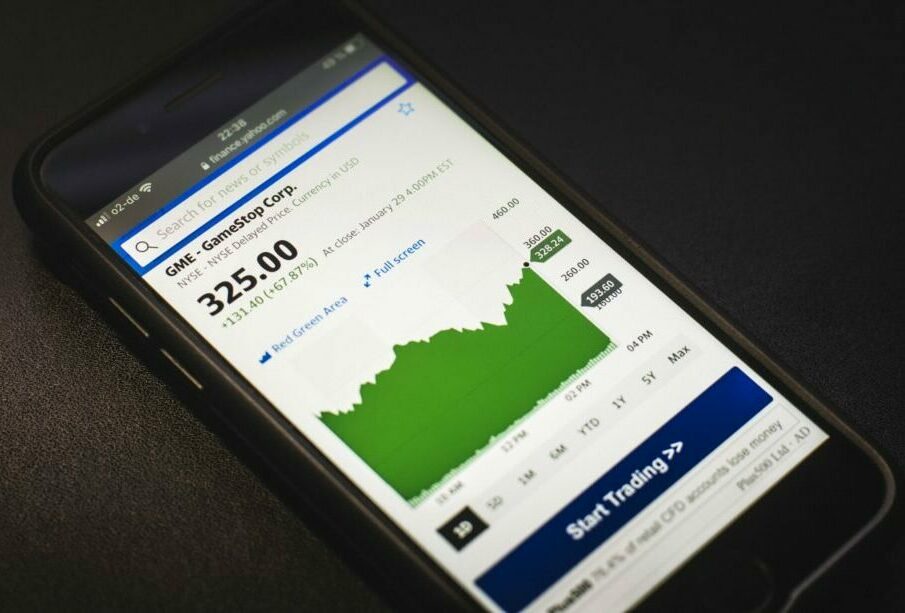Brief • 3 min Read

A recent study by The Harris Poll on behalf of Yahoo Finance found that over a quarter of Americans said they bought shares (either whole or fractional) from at least one of more than twenty viral company stocks like GameStop this past January.
Among those who purchased a viral stock in January, the most popular companies were AMC Entertainment (35%), GameStop (33%), and BlackBerry (23%).
Stock purchases skewed young and male with 40% of those ages 18-44 and 40% of men buying shares (compared to 17% of those 45+ and 16% of women, respectively).
However, big Internet and media buzz around viral stocks didn’t mean big spending. About half of those who invested this past January kept their total investments in viral stocks relatively small. Half (53%) of this group invested $250 or less in viral stocks while only 15% invested more than $1,000.
Most buyers, especially for GameStop stock, plan to sell soon if they haven’t already. Of those who bought GameStop stock this past January, 56% also sold shares in January. Of those who still have remaining shares, a third (34%) plan to hold their position for less than a month.
Information shared on the Internet was primarily responsible for encouraging viral stock investors to buy. The top three influences for buyers were information or advice they saw on social media (35%), information or advice they found on stock trading online forums (32%), and information they saw on the news (31%). One in five (20%) also invested based on the advice of a financial advisor.
Although motivation to get revenge on Wall Street has been a popular news narrative, only 15% of viral stock investors say getting revenge on Wall Street was a reason they decided to buy. This was also true for those who specifically bought GameStop stock, too.
Given the rise in personal investing, it’s perhaps no surprise that brokerage accounts are gaining steam among Americans this year, especially among men, young adults, and those of color. Only 40% of Americans say they have brokerage accounts, but of this group 43% say they signed up for an account in the past month.
New sign ups are even higher among young Americans with two-thirds (66%) of those ages 18-34 with brokerage accounts signing up for one within the last month. About half (49%) of all men with brokerage accounts reported signing up for one in the last month. Three in five Americans of color (57% of African Americans and 59% of Hispanic Americans) who have brokerage accounts also say they signed up for one in the last month (compared to 39% of White Americans).
Conversation around GameStop has almost certainly influenced brokerage account adoption, too. Two-thirds (67%) of those who bought GameStop or another viral company stock in the last month and have a brokerage account say they signed up for that account within the last month.
Nevertheless, despite the national buzz around viral stocks and the broader stock market, only a third of Americans (36%) have been interested enough to research how the U.S. financial system (e.g., banks, insurance companies, stock exchanges) and markets (e.g., primary markets/IPOs, secondary markets/stock markets) work in the past month.
Those who have done the most research on the country’s financial systems are men (49% vs. 25% of women), those in high income households (48% of those with HHI $100K+ vs. 31% of those with HHI<$100K), and Americans of color (53% of Hispanic Americans and 41% of African Americans vs. 32% of White Americans). Americans under 55 years were also nearly twice as likely to have done research on the U.S. financial system and markets compared to those 55+.
Perhaps unsurprisingly, those who participated in last month’s market spike were also keen to learn more about it. Almost three-quarters (72%) of those who purchased viral stocks in January say they researched how the U.S. financial system and markets work in the past month.
Methodology
This survey was conducted online within the United States by The Harris Poll on February 5-8, 2021, among 1,089 U.S. adults ages 18 and older. This online survey is not based on a probability sample and therefore no estimate of theoretical sampling error can be calculated. Figures for age, sex, race/ethnicity, education, region and household income were weighted where necessary to bring them into line with their actual proportions in the population. Propensity score weighting was used to adjust for respondents’ propensity to be online.
The “viral stocks” from which Americans indicated they purchased shares (either whole or fractional) in January 2021 include AMC Entertainment Holdings Inc (AMC), GameStop Corp. (GME), Blackberry Ltd (BB), Nokia Oyj (NOK), Castor Maritime Inc (CTRM), Churchill Capital Corp IC (CCIV), EZGO Technologies Ltd. (EZGO), Naked Brand Group (NAKD), Sorrento Therapeutics, Inc. (SRNE), Tyme Technologies Inc (TYME), Corbus Pharmaceuticals Holdings Inc (CRBP), Zomedica (ZOM), Express, Inc. (EXPR), RLX Technology Inc. (RLX), Healthier Choices Management Corp (HCMC), The9 Limited (NCTY), Koss Corporation (KOSS), Sundial Growers Inc. (SNDL), Tian Ruixiang Holdings Ltd (TIRX), and Novovax, Inc. (NVAX). Respondents to this survey were also allowed to select an “Other” option and list additional stocks if they had purchased a viral stock from a company that was not in the list provided. Claims about which stocks individuals purchased have not been verified by an independent brokerage firm, securities exchange, other financial institution, or trading records.
For more information on methodology, please contact Dami Rosanwo.
Subscribe for more Insights
Subscribe to our newsletter for the latest trends in business, politics, culture, and more.
Download the Data
Get the full data tabs for this survey conducted online within the United States by The Harris Poll on behalf of Yahoo Finance between February 5-8, 2021, among 1,089 U.S. adults ages 18 and older.
Download
Subscribe for more Insights
Subscribe to our newsletter for the latest trends in business, politics, culture, and more.
Download the Data
Get the full data tabs for this survey conducted online within the United States by The Harris Poll on behalf of Yahoo Finance between February 5-8, 2021, among 1,089 U.S. adults ages 18 and older.
DownloadRelated Content







